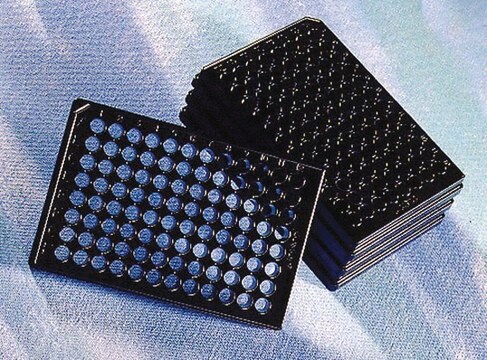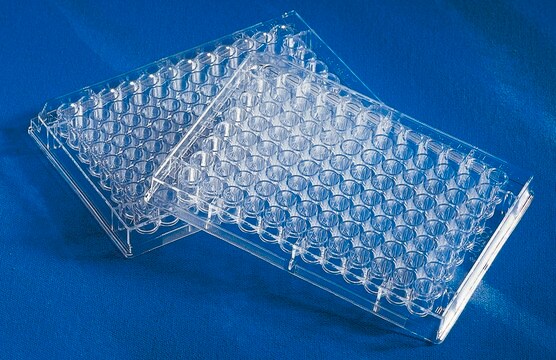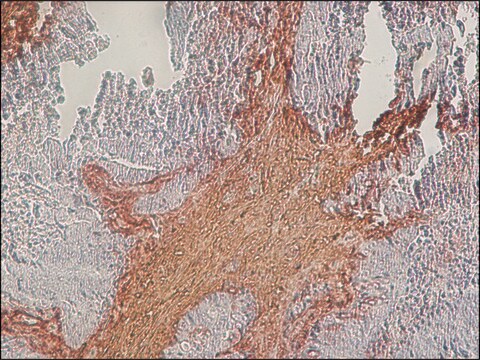MAB2035
Anti-Chondroitin 6 Sulfate Antibody, clone MK-302
ascites fluid, clone MK-302, Chemicon®
About This Item
Empfohlene Produkte
Biologische Quelle
mouse
Qualitätsniveau
Antikörperform
ascites fluid
Antikörper-Produkttyp
primary antibodies
Klon
MK-302, monoclonal
Speziesreaktivität
canine, sheep, rat, rabbit, mouse, bovine, human
Hersteller/Markenname
Chemicon®
Methode(n)
ELISA: suitable
radioimmunoassay: suitable
western blot: suitable
Isotyp
IgG1
NCBI-Hinterlegungsnummer
UniProt-Hinterlegungsnummer
Versandbedingung
dry ice
Posttranslationale Modifikation Target
unmodified
Angaben zum Gen
human ... ACAN(176)
Spezifität
Immunogen
Anwendung
RIA at 1:100-1:200.
Chondroitinase ABC digestion prior to antibody reaction is required for antibody reactivity. {0.5U/mL in 100mM Tris-HCL, 30 minutes room temperature} A dramatic proteolytic digestion of the core protein (e.g. with papain or pronase) significantly reduces the antibody reactivity.
Optimal working dilutions must be determined by the end user.
Physikalische Form
Rechtliche Hinweise
Sie haben nicht das passende Produkt gefunden?
Probieren Sie unser Produkt-Auswahlhilfe. aus.
Empfehlung
Lagerklassenschlüssel
10 - Combustible liquids
WGK
WGK 1
Flammpunkt (°F)
Not applicable
Flammpunkt (°C)
Not applicable
Analysenzertifikate (COA)
Suchen Sie nach Analysenzertifikate (COA), indem Sie die Lot-/Chargennummer des Produkts eingeben. Lot- und Chargennummern sind auf dem Produktetikett hinter den Wörtern ‘Lot’ oder ‘Batch’ (Lot oder Charge) zu finden.
Besitzen Sie dieses Produkt bereits?
In der Dokumentenbibliothek finden Sie die Dokumentation zu den Produkten, die Sie kürzlich erworben haben.
Unser Team von Wissenschaftlern verfügt über Erfahrung in allen Forschungsbereichen einschließlich Life Science, Materialwissenschaften, chemischer Synthese, Chromatographie, Analytik und vielen mehr..
Setzen Sie sich mit dem technischen Dienst in Verbindung.






